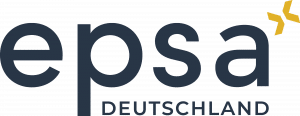This site uses cookies so that we can provide you with the best possible user experience. Cookie information is stored in your browser and performs functions such as recognizing you when you return to our website and helping our team understand which sections of the site you find most interesting and useful.
Businesses Risk Losing Up to 1 Million Euros
- Certifying Agency for Research Allowances Takes Up to Three Months to Review
- Without Approval, No Application to the Tax Office Possible
- The Maximum Assessment Basis Has Risen to 10 Million Euros Annually
- Businesses Underestimate the Eligibility of R&D Projects for Funding
EPSA Germany’s funding advisors recommend that businesses wishing to claim research and development (R&D) expenses from 2020 submit their applications by mid-August 2024. While the deadline for applying for the corresponding research allowance at the tax office is not until December 31, 2024, the certification agency for R&D tax credit (Bescheinigungsstelle Forschungszulage) requires two to three months to review the applications. Without this certification, the tax office will not process the research allowance application.
Review by the R&D Tax Credit Certification Agency can take up to three months
The certification process by the R&D Tax Credit Certification Agency (BSFZ) can theoretically be completed within two days. However, according to EPSA Germany’s experience, the RAA’s review currently tends to take two to three months. Therefore, the funding advisors recommend submitting applications no later than mid-August 2024. The positive certification from the RAA and the application (submission via Elster is sufficient) must then be submitted to the tax office by December 31, 2024 at the latest.
Efe Duran Sarikaya, CEO of EPSA Germany, states, “Given the lengthy approval duration by the RAA, businesses should utilize the capacities of funding advisors to save time. Many, like us, even operate on a 100% success-based fee.”
The research allowance offers businesses of all sizes and industries the opportunity to receive support for investments in research and development since January 1, 2020. Since the introduction of the research allowance in 2020, businesses can claim their eligible expenses retroactively for up to four years. This limitation period is governed by § 171 (10) of the Fiscal Code.
The Maximum Assessment Basis has increased to 10 million Euros annually:
With the announcement of the Growth Opportunities Act on March 27, 2024, significant expansions to the research allowance were also introduced:
- For R&D expenses incurred between January 1, 2020, and July 1, 2020, the assessment basis is up to 2 million euros. This means businesses can receive a refund of up to 500,000 euros for this period. The application deadline for 2020, however, as mentioned above, ends in late 2024.
- For R&D expenses incurred between June 30, 2020, and March 28, 2024, the assessment basis is up to 4 million euros annually. The refund is therefore up to 1 million euros per year. Here, the application deadline for 2020, as described above, also ends in late 2024.
- For R&D expenses incurred after March 27, 2024, the assessment basis is up to 10 million euros. This corresponds to a refund of up to 2.5 million euros, or even 3.5 million euros for small and medium-sized enterprises, annually.
Source: Bescheinigungsstelle Forschungszulage
Businesses underestimate the eligibility of R&D projects for funding
Sarikaya further comments, “In our day-to-day operations, we repeatedly see that many entrepreneurs are not aware that their projects are eligible for funding. For instance, it’s not necessary to invent a completely new product that does not yet exist on the market. Rather, it’s about gaining new insights that go beyond routine activities in the company and enable the implementation of industry novelties (e.g., new processes, technologies, materials).”
Eligible projects must be able to classify themselves into at least one category of basic research, industrial research, or experimental development. They must also define clear goals and include specific activities required to achieve these goals. Furthermore, the projects must meet all five R&D criteria of the Frascati Manual: novelty, creativity, uncertainty regarding the outcome, systematic approach, and transferability / reproducibility. Fundamentally, the allowance is open to all industries and themes.
If businesses are unsure whether their R&D project is eligible for funding, they should consult with funding advisors.










